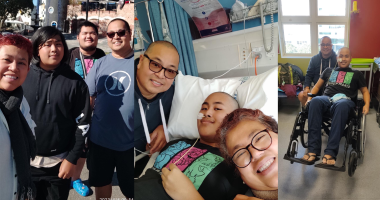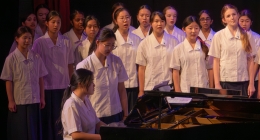The definition of Computer Science is “the study of the principles and use of computers,” according to Oxford Languages.
But the terminology “Computer Science” is so broad and vague that it doesn’t tell us anything about what it really is. It tells us that it’s the study of the use of computers and the principles of it, but what does that actually mean? Truthfully, there are several different branches of Computer Science, but all of them have one thing in common: solving problems through information and logical processing.
Here at Macleans College, students can study Computer Science from Year 9 to Year 13. There is the Year 9-10 Program which focuses on binary, Arduino programming, and web development and is only a half-year course. In the MCERT Year 11 course, students learn about data management, programming fundamentals, and computer systems.
For Years 12 and 13, students are able to choose between the NCEA and CAIE pathway.
In AS and A2, students have one singular course denoted by CPC, which is simply “Computer Science.” AS-level Computer Science is split into two halves, half theory, half programming. Students learn about how computers utilise and process information through hardware and software, and learn how to code in python. In A2-level, students are taught more complex theories about developing software and concepts such as encryption and security ; further expanding their knowledge of coding.
For NCEA subjects, there is no one broad term of “Computer Science”, instead, there’s a more specific subject name – “Digital Technologies.” As previously mentioned, Computer Science is an incredibly broad term – Level 2 and 3 Digital Technologies focuses on Human-Computer Interaction, a much more specific branch in the Computer Science tree. Human-Computer Interaction (HCI) deals with how humans interact with programs, such as User-Interfaces, User-experiences, and digital media design.
However, past high school and tertiary education, what’s the overall look for Computer Science jobs right now?
Truthfully, there are so many different branches of Computer Science in terms of jobs that it’s hard to talk about all of them. However, one thing about the job is that it’s incredibly flexible and forever changing. The world continues to develop more and more complex technology every day – and the job is simply part of that. Every day, there is a new challenge, and some jobs may be much more fast-paced than others.
For example, a job in cybersecurity means you’re consistently looking out for errors and network breaches and have a very fast-paced environment. However, if you’re a Human-Computer Interaction developer, the work day is very much slower as you’re carefully designing a UI (User Interface) for the consumer to use. As previously stated, Computer Science has so many branches to it that it can be hard to really grasp what each job does. Tech jobs always offer very competitive pay and are widely sought after for their high salaries.
Interest in Computer Science (CS) related jobs has skyrocketed since COVID-19, meaning the market is now incredibly competitive and saturated. The truth is, getting a job in the CS-market feels daunting and impossible, due to the high numbers of beginner and intermediate skilled applicants. Companies prefer much more experienced and senior developers, which can feel impossible to achieve as a new graduate.
Computer Science is overall a very flexible but rapidly changing field. Students should consider the speciality of Computer Science they want to and consider the availability of the job opportunities. But, if you want to increase your skill of informational logistics – this might be the one for you.
1st April, 2025
Written by Emma Li, edited by Aaron Huang and Chiron Ying
Photo by Alexandre Debiève on Unsplash









